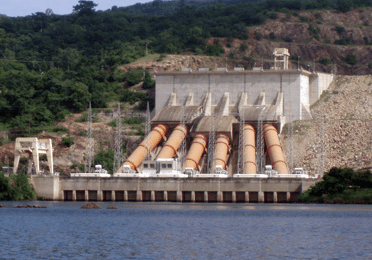New report shows energy consumption in Africa is low

A new Atlas charts data from 54 countries shows the energy potential of Africa and opportunities for investment to meet the continent’s energy needs.
It said energy consumption in Africa is the lowest in the world, and per capita consumption has remained almost constant since 2000 – according to the new Atlas released on Thursday by UN Environment and the African Development Bank during the World Economic Forum.
Current energy production in Africa is insufficient to meet demand, with about a third of the total population of Africa still lacking access to electricity.
The Atlas – developed in collaboration with the Environment Pulse Institute, United States Geological Survey and George Mason University – consolidates information in the “form of detailed ‘before and after’ images, charts, maps and other satellite data from 54 countries through visuals detailing the challenges and opportunities in providing Africa’s population with access to reliable, affordable and modern energy services” – said UN Environment in a press release to the Ghana News Agency.
Juliette Biao Koudenoukpo, Director and Regional Representative, UN Environment, Africa Office, said: “The Atlas makes a strong case that investments in green energy infrastructure can bolster Africa’s economic development and bring it closer to achieving the Sustainable Development Goals.
“It is, therefore, an important policy guide for African governments as they strive to catalyse national development by making use of their energy resources,” she added.
The Atlas highlights the success of sustainable energy development across the continent; however, it also shows the persistence of major environmental challenges associated with energy infrastructure development.
Amadou Hott, Vice-President in charge of power, energy, climate and green growth, African Development Bank, said: “This Atlas will be instrumental to ease access to information and data in the energy sector for all stakeholders, including the donor community, African governments and the private sector.”
Africa’s growing population, sustained industrialisation and rising urbanisation are placing mounting pressure on energy demand.
At present, only a remote fraction of the existing energy potential has been harnessed.
As a result, the continent is hugely hindered by unreliable access to energy which impedes both the production and manufacturing sectors.
It said if current trends continue, it will take Africa until 2080 to achieve full access to electricity – according to the Atlas.
The data details that Africa’s power mix is dominated by oil (42 per cent of its total energy consumption) followed by gas (28 per cent), coal (22 per cent), hydro (6 per cent), renewable energy (1 per cent) and nuclear (1 per cent).
However, Africa’s potential for renewable power generation is diverse – although unevenly distributed – and in the case of solar, almost unlimited.
Solar potential represents a massive 10 terawatts (TW), with hydropower, wind power and geothermal power potential standing at 350 gigawatts (GW), 110 GW and 15 GW respectively – according to the analysis.
Source: GNA
